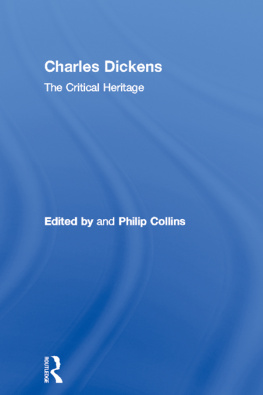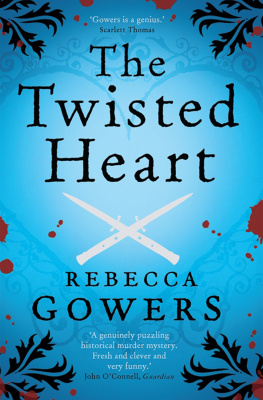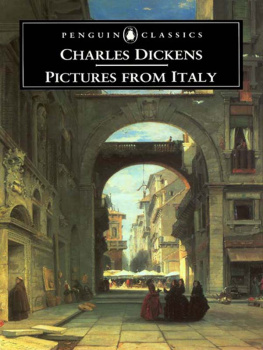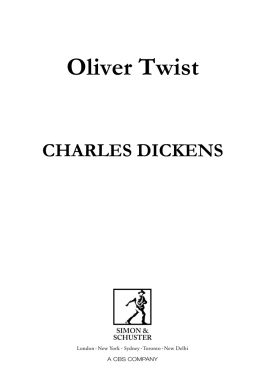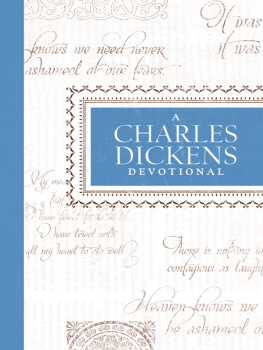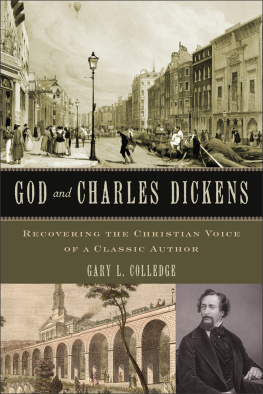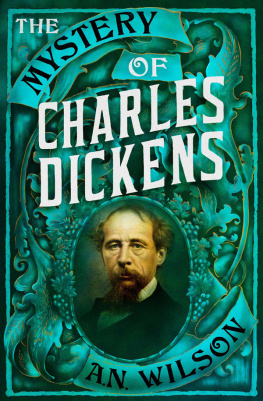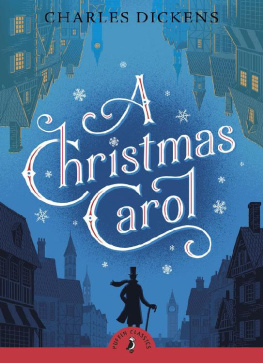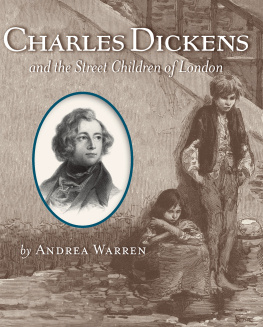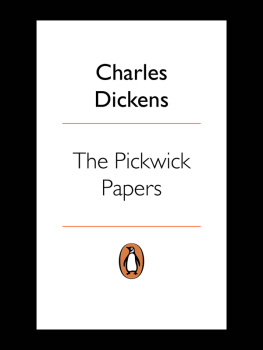Dickens Charles - Charles Dickens
Here you can read online Dickens Charles - Charles Dickens full text of the book (entire story) in english for free. Download pdf and epub, get meaning, cover and reviews about this ebook. City: London;New York, year: 1986, publisher: Routledge, genre: Detective and thriller. Description of the work, (preface) as well as reviews are available. Best literature library LitArk.com created for fans of good reading and offers a wide selection of genres:
Romance novel
Science fiction
Adventure
Detective
Science
History
Home and family
Prose
Art
Politics
Computer
Non-fiction
Religion
Business
Children
Humor
Choose a favorite category and find really read worthwhile books. Enjoy immersion in the world of imagination, feel the emotions of the characters or learn something new for yourself, make an fascinating discovery.
- Book:Charles Dickens
- Author:
- Publisher:Routledge
- Genre:
- Year:1986
- City:London;New York
- Rating:5 / 5
- Favourites:Add to favourites
- Your mark:
- 100
- 1
- 2
- 3
- 4
- 5
Charles Dickens: summary, description and annotation
We offer to read an annotation, description, summary or preface (depends on what the author of the book "Charles Dickens" wrote himself). If you haven't found the necessary information about the book — write in the comments, we will try to find it.
Charles Dickens — read online for free the complete book (whole text) full work
Below is the text of the book, divided by pages. System saving the place of the last page read, allows you to conveniently read the book "Charles Dickens" online for free, without having to search again every time where you left off. Put a bookmark, and you can go to the page where you finished reading at any time.
Font size:
Interval:
Bookmark:

CHARLES DICKENS: THE CRITICAL HERITAGE
THE CRITICAL HERITAGE SERIES
General Editor: B. C. Southam
The Critical Heritage series collects together a large body of criticism on major figures in literature. Each volume presents the contemporary responses to a particular writer, enabling the student to follow the formation of critical attitudes to the writers work and its place within a literary tradition.
The carefully selected sources range from landmark essays in the history of criticism to fragments of contemporary opinion and little published documentary material, such as letters and diaries.
Significant pieces of criticism from later periods are also included in order to demonstrate fluctuations in reputation following the writers death.
CHARLES DICKENS
THE CRITICAL HERITAGE
Edited by
PHILIP COLLINS

First published in 1986
This edition published in the Taylor & Francis e-Library, 2005.
To purchase your own copy of this or any of Taylor & Francis or Routledges collection of thousands of eBooks please go to www.eBookstore.tandf.co.uk.
Compilation, introduction, notes and index 1971 Philip Collins
All rights reserved. No part of this book may be reprinted or reproduced or utilized in any form or by any electronic, mechanical, or other means, now known or hereafter invented, including photocopying and recording, or in any information storage or retrieval system, without permission in writing from the publishers.
British Library Cataloguing in Publication Data
ISBN 0-203-19475-6 Master e-book ISBN
ISBN 0-203-19478-0 (Adobe eReader Format)
ISBN 0-415-13459-5 (Print Edition)
General Editors Preface
The reception given to a writer by his contemporaries and near-contemporaries is evidence of considerable value to the student of literature. On one side we learn a great deal about the state of criticism at large and in particular about the development of critical attitudes towards a single writer; at the same time, through private comments in letters, journals, or marginalia, we gain an insight upon the tastes and literary thought of individual readers of the period. Evidence of this kind helps us to understand the writers historical situation, the nature of his immediate reading-public, and his response to these pressures.
The separate volumes in the Critical Heritage Series present a record of this early criticism. Clearly, for many of the highly productive and lengthily reviewed nineteenthand twentieth-century writers, there exists an enormous body of material; and in these cases the volume editors have made a selection of the most important views, significant for their intrinsic critical worth or for their representative qualityperhaps even registering incomprehension!
For earlier writers, notably pre-eighteenth century, the materials are much scarcer and the historical period has been extended, sometimes far beyond the writers lifetime, in order to show the inception and growth of critical views which were initially slow to appear.
In each volume the documents are headed by an Introduction, discussing the material assembled and relating the early stages of the authors reception to what we have come to identify as the critical tradition. The volumes will make available much material which would otherwise be difficult of access and it is hoped that the modern reader will be thereby helped towards an informed understanding of the ways in which literature has been read and judged.
B.C.S.
Contents
Preface
Most of the 168 items reprinted here are reviews or essays from periodicals, published during Dickenss lifetime and in the decade or so after his death, and most of them have been abbreviated, often drastically. This was a period when a review of a single book could extend over ten thousand words (the Quarterly Review devoted about 17000 words to Pickwick and Sketches by Boz, in October 1837), and a substantial assessment of an authors work might go well beyond that length. I have preferred to represent a wide range of response to all Dickenss fictional works, and a few others, rather than reprint entire a handful of the most intelligent, or representative, reviews: but I realize that my cuts, like my selection of items, are necessarily a very personal choice, and that another editor, as well-qualified as myself, would have plied his scissors quite differently. Inevitably, the full argument being developed by a critic has sometimes been ill-represented when so much of his evidence has been omitted; and sometimes I have selected from a long item one or two minor points, rather than the authors main argument (which may be of less interest, or may have been fully represented in other items). The reader should, therefore, remember that my aim has been to show a wide range of contemporary responses to Dickens, rather than always to give adequate evidence for an assessment of his critics qualities. These qualities will, of course, often enough be apparent, but any reader who wants to be sure of being fair to, say, Mrs Oliphant as a critic should consult her items in their original fullness rather than rely on the selections which my special purposes have led me to make.
I have also included some less formal reactions to Dickens, from letters, diaries, and reports of the conversations of his contemporaries. Particularly I have thus tried to show how he struck various people illustrious in literary and public life.
The materials available for such a collection are overwhelmingly numerous, and I am far from having examined them all. The task of doing so may be gauged from what is doubtless the most complete published list of reviews of one novelProfessor Kathleen Tillotsons, in an Appendix to her Clarendon edition of Oliver Twist (1966). She lists 109 reviews of Oliver Twist, published while it was still being serialized, 19 of the three-volume edition, and (very selectively) a further 21 discussions in other articles about Dickens and contemporary fiction up to 1846a total of 149 items, from 42 periodicals. I have consulted 25 of these 42, though not in all cases for their discussions of Oliver Twist; and, as Professor Tillotsons list reminds us, a single periodical might have a number of reviews of one novel as it had appeared serially. To cite an example: Dickenss letter of thanks to the Editor of the Sun (14 April 1848) for its perceptive reviews of Dombey and Son sent meor, to be more precise, my long-suffering wifeto the files of that newspaper. The review which had pleased Dickens (Sun, 13 April 1848) had, it was discovered, been preceded by thirteen others, many quite substantial, of the earlier serial parts. The Spectator (24 November 1838) noted how Dickenss popularity was promoted by serialization, and the possibility of a books thus getting twenty notices instead of one (see No. 10). This fact obviously increases an editors task in collecting, and selecting, his materials. Moreover, the number of periodicals being published increased enormously during Dickenss lifetimeabout three-fold between the period of Pickwick and Oliver, and 1870 when Edwin Drood appeared and Dickens diedso, although (as my impression is) the practice of reviewing every serial number became less common, the number of reviews tended to increase. And Professor Tillotsons list excluded provincial newspapers and foreign periodicalsbut already, in 1838, Leigh Hunt was able to rejoice that all England, America, and the literati of France and Germany concurred in hailing Dickens as a genius (
Next pageFont size:
Interval:
Bookmark:
Similar books «Charles Dickens»
Look at similar books to Charles Dickens. We have selected literature similar in name and meaning in the hope of providing readers with more options to find new, interesting, not yet read works.
Discussion, reviews of the book Charles Dickens and just readers' own opinions. Leave your comments, write what you think about the work, its meaning or the main characters. Specify what exactly you liked and what you didn't like, and why you think so.

